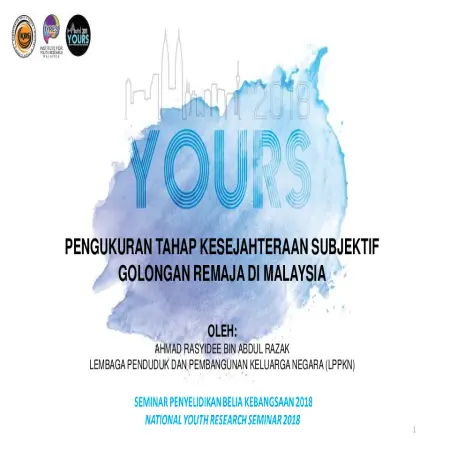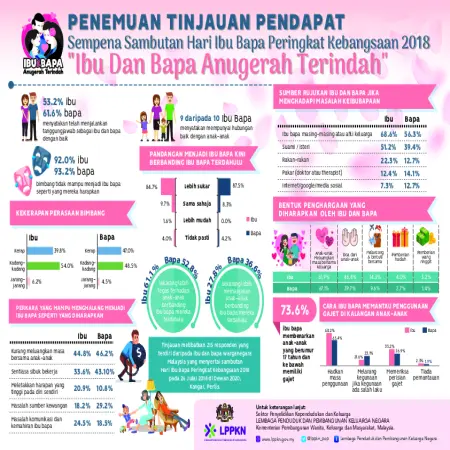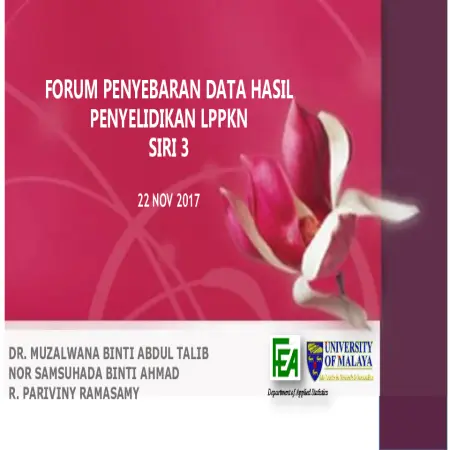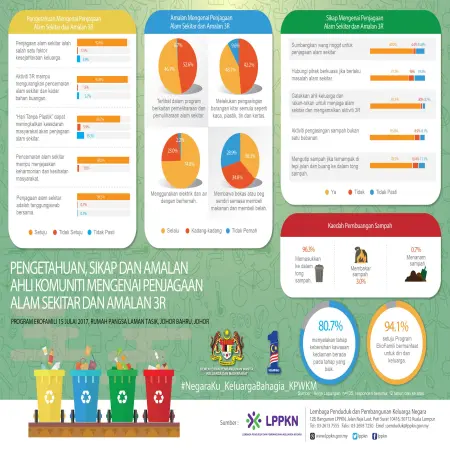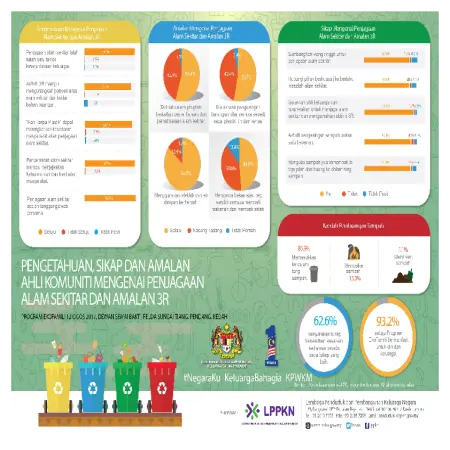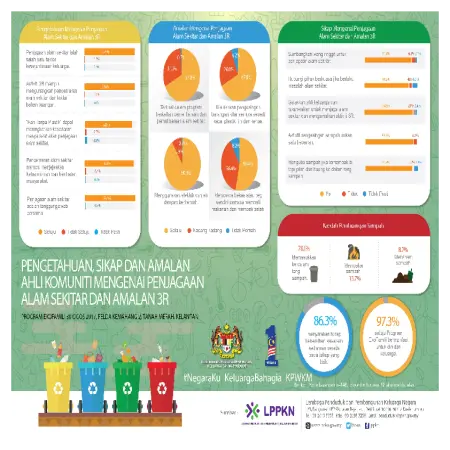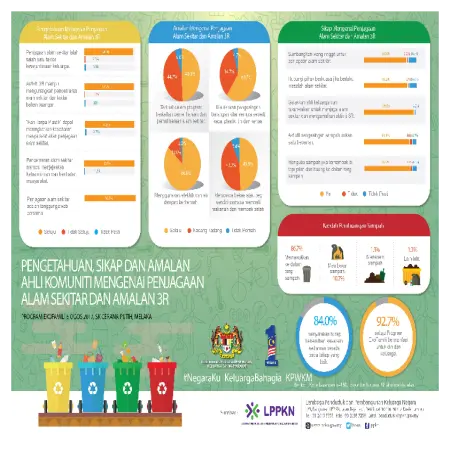Advanced Search
|
|
Pengukuran tahap kesejahteraan subjektif golongan remaja di Malaysia
Item Type: Conference or Workshop Item
Editor:
Year: 00/00/2018
Abstract: This presentation aims to measure the level of subjective well-being of adolescents in the country aged between 18 and 24 years old. A total of 2,597 respondents were analyzed using data from the Fifth Malaysian Population and Family Survey (MPFS-5). The article found that the level of subjective well-being is higher in female adolescents as compared to male adolescents, the level of well-being especially their standard of living, health and safety will be reduced in tandem with an increase in age.
|
|
|
|
|
|
Peranan sosialisasi ibu atau bapa komuter dipermudahkan dengan bantuan teknologi gajet dan media sosial: kajian kes di bangunan Ibu Pejabat LPPKN
Item Type: Thesis
Editor:
Year: 00/00/2018
Abstract: This study looks into the role of parents as the socialisation agent for their children in the lives of commuter families, which refers to the parents who do not live with their children due to distance and occupational demands. The rapid development of gadgets and social media technology such as the development of smart phones and
web 2.0 has allowed online social interactions made possible and can be used as a medium of change in being able to connect people who are at a distance from each other as seen in the case of commuter children and their parents. This study looks closely at how gadgets and social media technology helps parents of commuter families who work specifically at the LPPKN headquarters building and the role it plays
as a socialisation agent for their children. There are three research objectives in this study and they are as follows i) to explore the usage of gadgets and social media technology by parents in commuter families, ii) to identify the parenting style that is practiced by parents in commuter families when interacting with their children, iii) to analyse the effects of gadgets and social media technology on the role of parents in commuter families as the socialisation agent for their children. This study uses the qualitative approach through in-depth interviews and non-participant observation there are 10 participants involved in this study that was selected using purposive sampling. The symbolic interactionism and dramaturgy theory was used to explain the role of
gadgets and social media technology to the parents of commuter families and in helping them to understand their role in the socialisation of their children. Results from the study has shown that the use of gadgets and social media technology has definitely aided parents in commuter families' role in being the socialisation agent for their
children through online interactions. Other results include gaining insight to the authoritative parenting style that is executed in a democratic nature of commuter family parents and their consciousness towards the needs of their children. Besides that, the study has shown that gadgets and social media technology has given a positive effect towards parents of commuter families' role in being the socialisation agent for their children, in that it strengthens the bond and interactions between parent and child. This study has found that the use of gadgets and social media technology has enabled parents of commuter families to exercise their socialisation responsibilities towards their children through means of educating them and instilling moral values.
|
|
|
|
|
|
Penemuan tinjauan pendapat sempena sambutan hari ibu bapa peringkat kebangsaan 2018 "Ibu dan bapa anugerah terindah"
Item Type: Infographic
Editor:
Year: 00/00/2018
Abstract: This infographic is about the findings of the opinion poll in conjunction with the 2018 national Parents' days celebration with the theme "Ibu dan bapa anugerah terindah". 9 out of 10 parents state having a good relationship with children.
|
|
|
|
|
|
Parenting style and risk level of drug abuse among students in USIM
Item Type: Thesis
Editor:
Year: 00/00/2018
Abstract: Drug issue is a worldwide problem being faced by many countries and creates a complicated social problem including drug abuse among teenagers. This requires an aggressive corrective action by related agencies because it is getting rampant and has yet to be resolved. Nevertheless, society cannot always depend upon the related agencies to solve this problem. The family institution is believed to also have a role to prevent or reduce the drug abuse rate in teenagers. Looking on this aspect, the parenting style is important in shaping good character in behavior, interest, goals, and beliefs of the teenagers. A total of 121 Tamhidi students in USIM involved as respondents for the present study. Each respondent was given a questionnaire with 60 questions, represented by three sections which are - A: Demography; B: DAST-20; and C: Parenting Style. Results revealed that gender has a significant difference (p<0.05) on sociodemographic characteristic. However, no significant difference (p>0.05) were observed on the age, parent marital status, and family household. On the other part of the study, significant difference (p<0.05) was observed on the parenting style. Authoritarian style of parenting has recorded with a low-risk (46.3%) drug taking by the respondents followed by permissive parenting style (25.0%). The analysis also revealed that respondents with parent who are applying the authoritative parenting style had no-risk of possibility on taking drug (96.7%). In summary, socio-demographic attribute on gender and permissive parenting styles has been associated with high-risk drug abuse among respondents in the present study.
|
|
|
|
|
|
Pedofilia: selamatkah anak-anak kita?
Item Type: Article
Editor:
Year: 00/05/2017
Abstract: Recently, we were shocked by a news that was very foreign to us. A British man has been convicted of molesting and sexually abusing children, including in Malaysia. The psychological disorder is called pedophilia, while the perpetrators of child sexual harassment are called pedophiles. A person who suffers from pedophilia, may also not be a pedophiles (for not committing any sexual behavior against children), but a pedophile turns out to be a person suffering from pedophilia.
|
|
|
|
|
|
Perbandingan kesejahteraan psikologi wanita di kalangan keluarga komuter dan keluarga tradisional di Malaysia: satu kajian awal
Item Type: Conference or Workshop Item
Editor:
Year: 00/00/2017
Abstract: The objective of this study was to make a comparison of the psychological well -being of women among commuter families and not from commuter families based on the factors that contribute to the psychological well -being of each category. The study was also to compare female fertility levels among commuter families and non -commuter families.
|
|
|
|
|
|
Pengetahuan, sikap dan amalan ahli komuniti mengenai penjagaan alam sekitar dan amalan 3R di Johor.
Item Type: Infographic
Editor:
Year: 00/00/2017
Abstract: Findings of the opinion survey knowledge, attitudes and practices of community members on environmental care and 3R practices during eco family -programs in Johor
|
|
|
|
|
|
Pengetahuan, sikap dan amalan ahli komuniti mengenai penjagaan alam sekitar dan amalan 3R di Kedah
Item Type: Infographic
Editor:
Year: 00/00/2017
Abstract: Findings of the opinion survey knowledge, attitudes and practices of community members on environmental care and 3R practices during eco family-programs in Kedah
|
|
|
|
|
|
Pengetahuan, sikap dan amalan ahli komuniti mengenai penjagaan alam sekitar dan amalan 3R di Kelantan
Item Type: Infographic
Editor:
Year: 00/00/2017
Abstract: Findings of the opinion survey knowledge, attitudes and practices of community members on environmental care and 3R practices during eco family-programs in Kelantan
|
|
|
|
|
|
Pengetahuan, sikap dan amalan ahli komuniti mengenai penjagaan alam sekitar dan amalan 3R di Melaka
Item Type: Infographic
Editor:
Year: 00/00/2017
Abstract: Findings of the opinion survey knowledge, attitudes and practices of community members on environmental care and 3R practices during eco family -programs in Melaka
|
|
|
|





